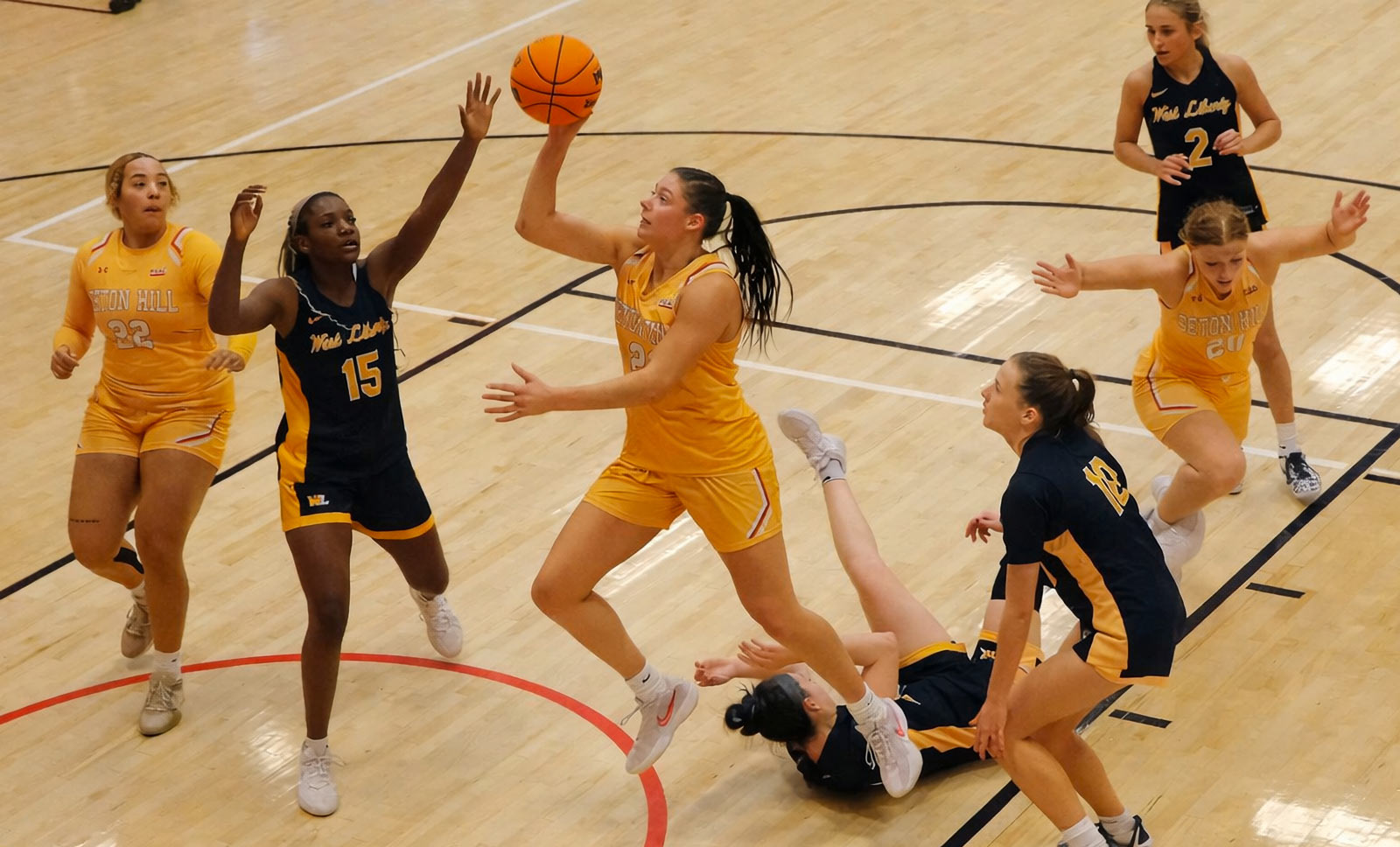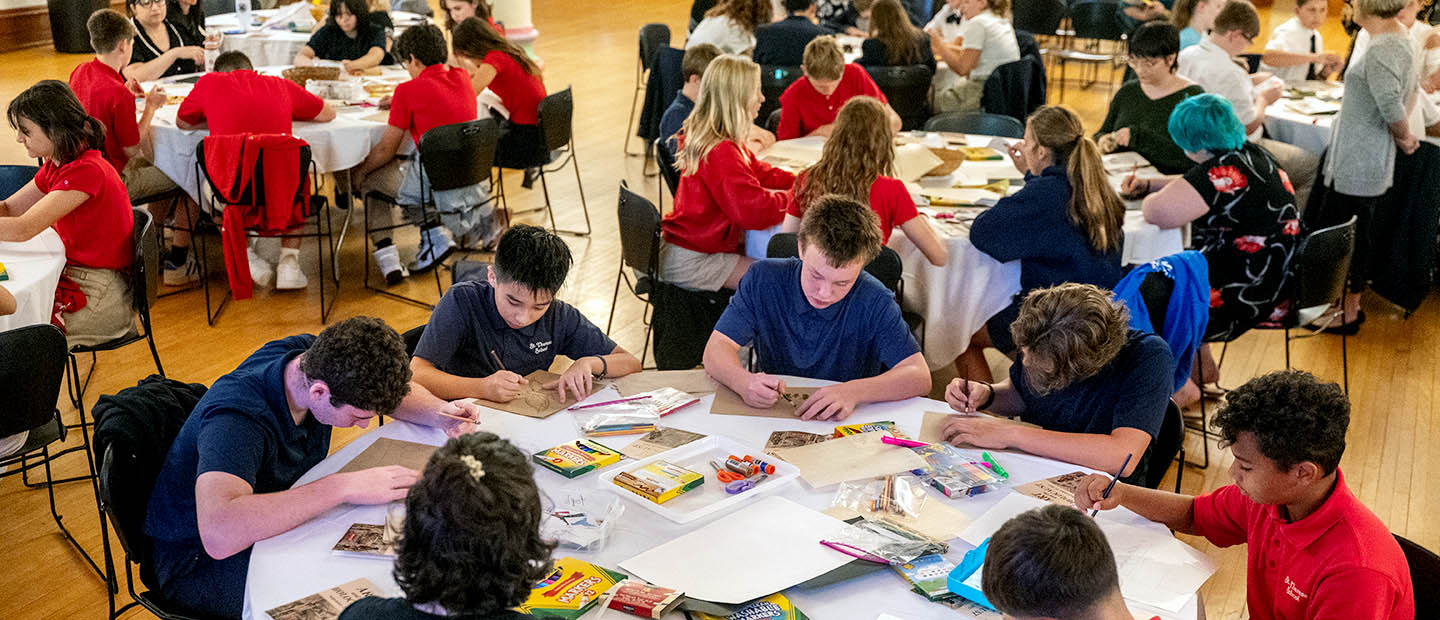Future Teachers Learn to Teach Art & Science to Children - Virtually
by Amy Long, English Major & Marketing Communication Intern
Seton Hill’s School of Education and Child Development Center have been working together to come up with socially-distanced ways to teach future educators and young children.
Virtual STEAM Festival
Every year, Seton Hill education majors have a “STEAM Festival” for the Child Development Center. Usually, the young children take part in science, technology, engineering, art and math projects on Seton Hill’s main campus. This year, Seton Hill University’s education majors have become extra creative with their STEAM projects by making them virtual.
“The activities ranged from an ocean in a bottle to creating constellations using marshmallows and toothpicks,” said Melissa Tamburrino, Ed.D., assistant professor of education at Seton Hill. “Our students created Zoom links to hold the lesson, prepared the lessons and supplies for the CDC, and provided feedback once the lessons were completed.”
“[Cayla Cosner and I] taught our students about the three states of matter using root beer floats,” said Seton Hill student Briahna Bell. “Root beer being the liquid, ice cream as the solid, and the foam created by the reaction of the solid and liquid was the gas. We thought the root beer float served as a real-life application that would make our science topic easier to understand. Young children love food and ice cream and we saw this as the perfect fit to explain matter.”
"This is the happiest day ever!’"
Amber Lenhart and Sara Quatse collaborated to create a project focused on force and motion. Lenhart had this to say about their project, “We had ramps made out of boxes and cars to go down the ramp… Throughout the experiment, the students practiced using the ramp with various elevations in order to determine if the car went fast or slow with a steep or level slope. The students started to get a beginning sense of gravity in this experiment, even though the term was not used. They also discovered that with a completely level slope, they must use another force to move the car, such as pushing it using their hands. After guided and independent practice, the students watched a video involving force and motion and drew a picture of a ramp.”
Other STEAM projects included:
- Rainbow Rain Weather Experiment by Dallys Clark, Aleah Cohen and Madison Porter
- Create Your Own Constellations by Challon Fisher and Ashley Smith
- Cloud in a Jar by Kelsey Fritz and Kayleen Pontoriero
- Humpty Dumpty & the Wall by Krista Lebar and Emily Ukasik
- Marble Maze by Madison McMicheal and James Moon
- Living vs. Non-Living Things by Nathan Lovre and Jade Taylor
- Building a Dr. Seuss Hat Tower by Samantha Shaffer and Loralee Yutzy
“For the STEAM projects, the CDC students have been really excited to use the iPads,” said Maria Stone, director of the Child Development Center. “Even though we have used them in the past, it has mostly been for educational games during their free play or for student-led photography lessons. This is the first experience they've had at school using technology in such an individual reciprocal manner.”
Creating Art Together (Apart)
In a recent collaborative art project, Seton Hill education majors painted on one side of a window, while the children of the CDC painted on the other.
“During the window painting, children were painting their first names, and creating stories from the characters they were painting on the windows,” said Kathleen Harris, Ph.D., associate professor of education and dean of the School of Education and Applied Social Sciences.
Seton Hill education majors added to the art, from their side of the window.
“The Window Art was a beautiful moment of collaboration and creativity,” said Stone. “Add to it the children got to paint on the windows, which they've never had the opportunity to do, made it even more special and exciting.”
“As we take on the challenges brought on by COVID-19, we know now that we can get through this together,” Dr. Harris said. “All of us will likely recall the pandemic of 2020. What will our children remember? My guess is that our children at the CDC may remember moments of laughter and smiles when painting with a ‘new friend’ outside their classroom window.”
Maria agrees. “During the Window Art lesson, one of the students responded that ‘This is the happiest day ever!’ Both sets of activities moved me. I think they've given everyone, children and teachers alike, a bit of revitalization. It makes us excited to keep coming up with new and unique ways to reach everyone and give them more and more opportunities to experience joy in education."



